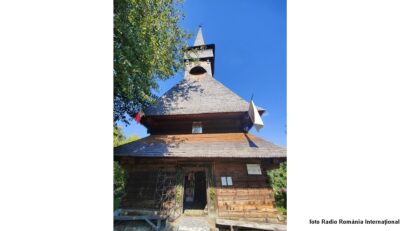How Romanians See Their Decade-Long EU Membership
Ten years ago, on 1 January 2007, Romania and Bulgaria were joining the EU

Christine Leșcu, 04.01.2017, 13:05
Ten years ago, on 1 January 2007, Romania and Bulgaria were joining the EU in an extension of the most ample enlargement phase of the Union, which occurred in 2004. This generated a lot of enthusiasm in all former communist states, especially Romania. The country had the highest confidence in EU institutions, according to polls. We went out to determine what attitudes were like after ten years, considering that the year 2016 saw the Brexit and high profile terrorist attacks. We also wanted to find out if the same level of enthusiasm exists in Romania with regard to EU institutions as a decade ago.
According to a recent Eurobarometer poll commissioned by the European Parliament, 53% of Romanians believe the EU membership is positive for their country. This percentage more or less matches the European average, but it is a big drop from the previous figures of 70 to 80%, reported before Romania joined the bloc. Bogdan Voicu, a sociologist with the Quality of Life Research Institute with the Romanian Academy, says this is not surprising at a time when all Europeans share a lot of worries:
Bogdan Voicu: “This percentage is in line with the global trend of decreasing confidence in supra-national institutions. Then we should take into account Romania’s position, which is rather special. Romania came into the EU with a very high level of confidence, with a strong wish to be there, with people regarding the EU membership as a proof that they belong in the civilised world. On the one hand we are trying to define our importance as Romanians, on the other we want to be recognized as civilised citizens of the world. Being ‘civilised’ translates for us as being in the EU, being recognized as European citizens as well.
In the ten years since joining, Romanians had a chance to get better informed about EU institutions, and to understand that their influence is limited. And joining the Union did not mean only milk and honey, to quote MEP Renate Weber, a member of the Committee on Employment and Social Affairs:
Renate Weber: “We should not overlook the factors that influence the answers given by citizens at a given point, the discussions that take place in each country. This poll comes at a time when many in Romania have blamed the EU for its policies, and for the way in which Romania feels left outside the decision making channels. The fact that we were not accepted into the Schengen area has also affected Romanians feelings as European citizens. In addition, most people say that freedom of movement is an important element, and one that clearly ties into European identity.
Since almost every Romanian has relatives or friends working in other member states, labour mobility has become a precious commodity. In fact, asked what the benefits of the EU membership are, 44% of Romanians answered “freedom of movement.
Overall, the percentage of people who believe that joining the Union has brought them benefits seems to be higher in Romania than in other EU member states. An average of 60% of Europeans believe that their country benefited from being a member, compared to 64% of Romanians. Generally speaking, 54% of Europeans believe things are on the wrong track, while only 25% believe things are moving in the right direction. In this respect as well, Romanians are among the most optimistic Europeans. According to sociologist Bogdan Voicu, these answers indicate that Romanians still have high expectations from community institutions, especially in contrast to their national institutions:
Bogdan Voicu: “The people who feel they bear higher costs are becoming more skeptical. On the other hand, Romania is a country that has had economic growth in the last few years, which has reflected in the standard of living. When you have growth, you are more optimistic in assessing the course of society. In addition, we still tend to see Europeans as less corrupt and better organized than us. As a result, we display a sort of anticipatory optimism, in other words, there will come a time when it will all be well for us too.
The section of the Eurobarometer dealing with the European Parliament also sheds light on the higher expectations Romanians have of EU institutions in contrast to national ones: 38% of Romanians trust the EP, way above the European average of 25%. Also, 35% of them believe that their voice is better heard at European level than at national level. Here is MEP Renate Weber:
Renate Weber: “I would be delighted to say that this is happening because people appreciate more what we are doing here, in the European Parliament. But I will be objective and I will say that, in my opinion, the lack of confidence that Romanians have in their national parliament is so high that people feel they should rely on another institution. On the other hand, here at the European Parliament we get a lot of messages, e-mails or regular letters. A lot of us, European MPs, actually answer these letters. For Romanian citizens, who are not used to receiving feedback from the authorities, that is proof of normal behaviour.
In conclusion, according to this poll, the EU still has the support of its citizens, even though enthusiasm is dwindling. In addition, according to the standard autumn Eurobarometer, most Romanians have confidence in the EU, namely 52% as opposed to the European average of 36%. And reservations aside, 66% of Europeans and 79% of Romanians still believe that the EU is an island of stability in a troubled world.






























